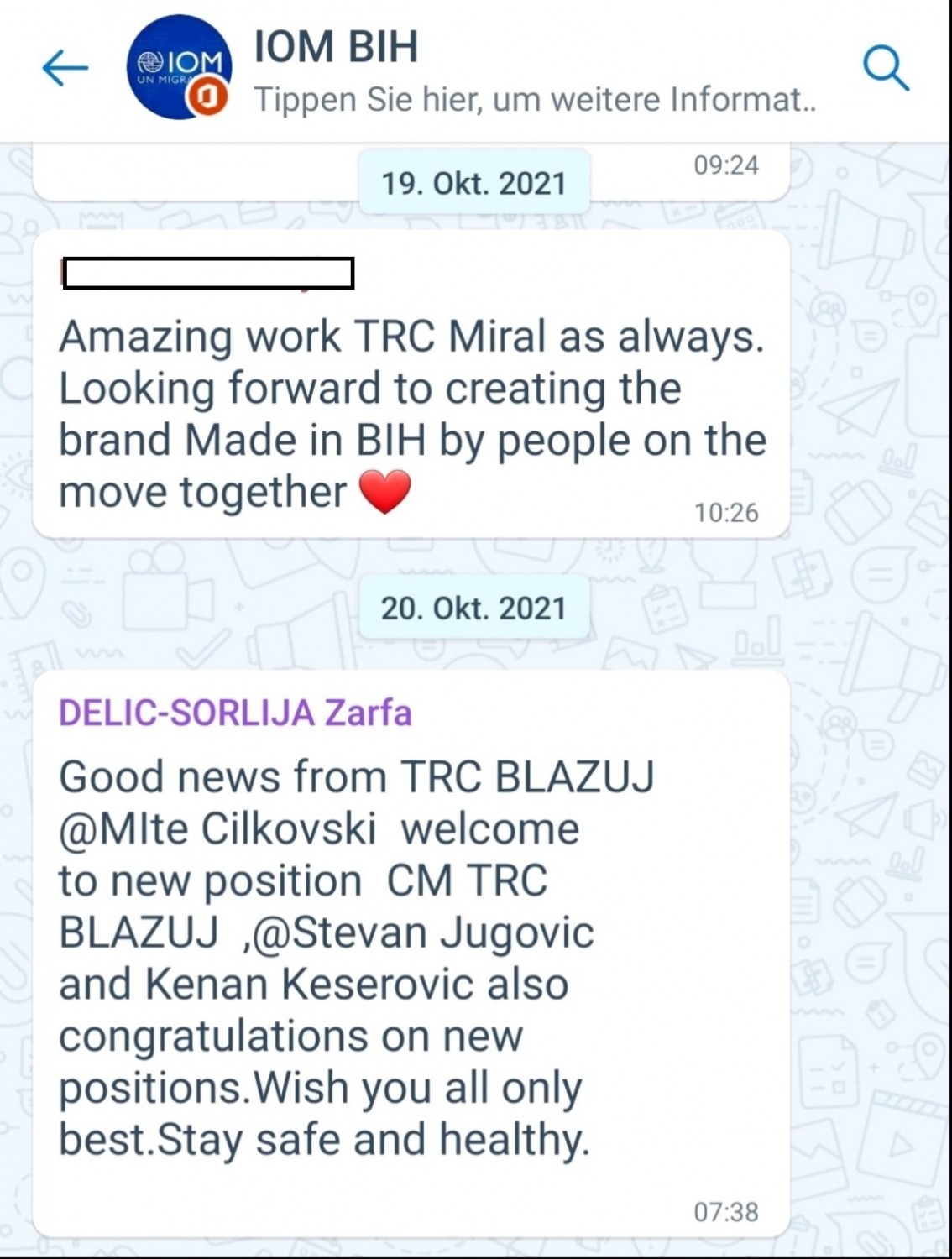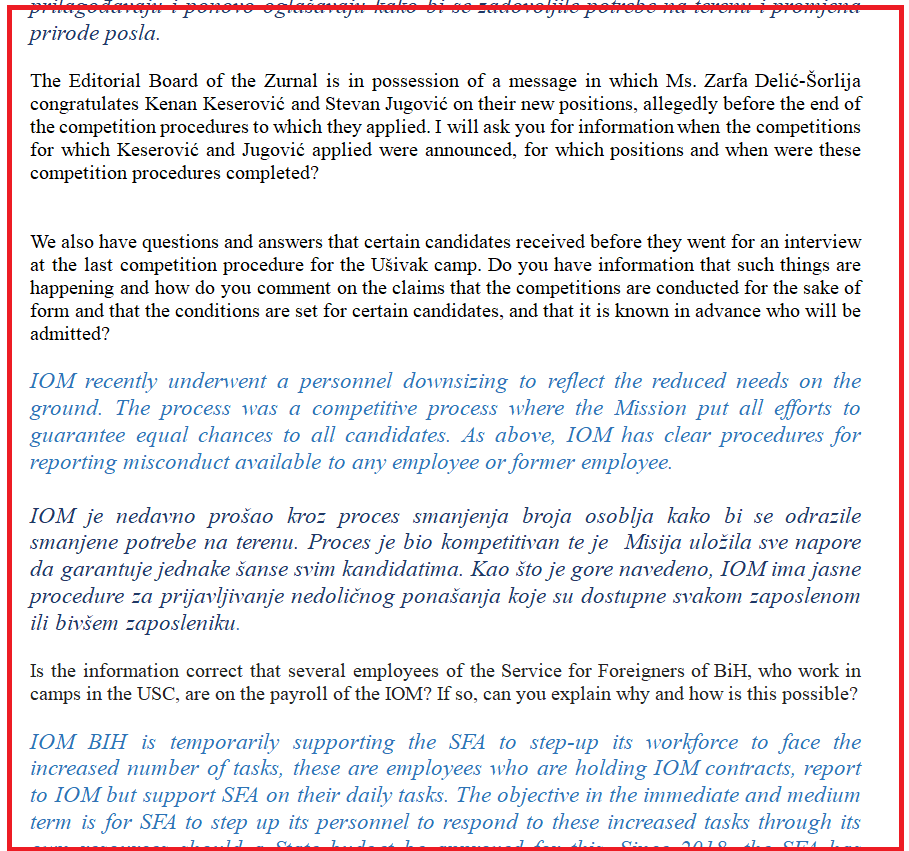Iranian Arms Shipments to Bosnia: 1994 (https://www.globalsecurity.org/intell/ops/bosnia-arms.htm)
The Balkan war began in 1991 when a conservative Serbian coalition in Belgrade, led by Serbian President Slobodan Milosevic and including the commanders of the old Yugoslavian army, decided to use all means fair and foul to keep Yugoslavia together. Croatia, which declared its independence at the same time, put up unexpected resistance. Serbs see themselves as the historically aggrieved party, as brave and sturdy defenders of an authentic Slavic culture against Turks and Teutons alike. Croats regard Serbs as non-European barbarians who lived so long under the Turks they became like them. Croats regard themselves as Central European rather than Balkan and heirs to centuries of Habsburg high culture and civilization. Outsiders can't tell them apart.
The Croats were terribly outgunned, relying on the meager arsenals of the territorial defense forces that had been set up in the old Yugoslavia. Croatia continued to mobilize and purchase equipment through a leaky arms embargo. Analysts claim that large amounts of Soviet-type arms and munitions from the defunct East German Volksarmee reached Croatia via a sympathetic Hungary. Germany clearly favored Croatia and pushed the rest of West Europe into diplomatic recognition of Zagreb in late 1991.
Bosnian Croats and Muslims claimed to have patched things up with the US-brokered agreement signed in Washington in March 1994. They agreed to form a Croat-Muslim federation within Bosnia and then confederate this with Croatia proper. This solidified Croatian power in Herzegovina and provides Bosnian Muslims with much-improved access to arms and munitions. The improved relations mean that Croatian airfields and ports serve as conduits for war materiel from sympathetic Islamic states. Quickly, outside support flowed into Bosnia via Croatia. The first week of May 1994, for example, an Iranian air force transport landed with 60 tons of explosives at Zagreb [See John Pomfret, "Iran Ships Material for Arms to Bosnians," The Washington Post, 13 May 1994, p. A1.]
In April 1996, the Los Angeles Times published an article alleging that in 1994 the Clinton administration had given a "green light" to the government of Croatia to allow Iranian arms destined for Bosnian Muslims fighting in theformer Yugoslavia to transit its country. At the time, a UN arms embargo was in effect forbidding shipments of arms to the former Yugoslavia, an embargo the United States had pledged to uphold. The press account also speculated the US government was engaged in a covert action, not reported to the congressional oversight committees, to facilitate the flow of arms from Iran to the Muslims in Bosnia.
As Reprasentative Diaz-Balart posed the question, "did the White House permit a mortal enemy of the United States to establish a military presence in Europe, or did the White House inspire a mortal enemy of the United States to establish a military presence in Europe? That is the essence of the question that this Congress will be investigating in the next months and that we at this time are authorizing funding for, the select subcommittee of the Committee on International Relations.
"The administration's policy, No. 1, directly contradicts the stated position of the Government of the United States. This Congress repeatedly tried to lift the arms embargo against Bosnia, and the administration opposed us, and the President vetoed our attempts to do so. The policy was also not revealed to the Congress, nor to the American people, and it has allowed the terrorist government of Iran to gain a strategic presence in Europe.
"The administration now admits that despite the fact that it opposed our attempts to openly permit the arming of the Bosnian people by the United States directly or through our allies or responsible Muslim governments, instead of doing that the administration opposed congressional efforts and engaged in this tactic of secretly giving a green light to the arming of the Bosnians by one of the most horrendous enemies of the American people."
House Speaker Newt Gingrich said 11 April 1996 that he, Senate Majority Leader Bob Dole (R-Kan.) and other lawmakers had many meetings with Clinton about U.S. Bosnia policy over the last three years--while the United States was publicly upholding the international arms embargo against Bosnia. Never, he said, did Clinton indicate that the administration had given a green light to Iranian arms smuggling. Gingrich said that congressional leaders who supported lifting an arms embargo -- or who might have approved of covert U.S. efforts to encourage Muslim countries friendly to the United States to secretly arm the Bosnians -- were repeatedly rebuffed by the president. Clinton told them that such efforts would antagonize European allies and violate international agreements.
House Speaker Newt Gingrich said 26 April 1996 that the Clinton administration's secret policy of allowing Iranian arms shipments to Bosnia-Herzegovina may have violated covert-action laws. "President Clinton's policy of virtually inviting Iran into Europe could have disastrous results for America," Mr. Gingrich said in announcing the formation of a special committee to investigate the policy.
Both intelligence committees began investigations at the request of their respective leaderships. Ultimately, the committees found that the US ambassador to Croatia, when asked by Croatian government officials whether the United States would object to the transit of Iranian arms through the country, had responded that he had "no instructions" from Washington on the matter. This response, in turn, led the Croatian government to believe that the United States had no objection, and the flow of Iranian arms through its country expanded significantly.
DCI James Woolsey later contended that CIA had not been advised of the ambassador's response or of any change in the US position of support for the embargo. Indeed, as the Agency began to see signs of the expanded arms flow its own officers raised concerns that the United States might be covertly facilitating the flow of such arms, contrary to the UN embargo.
Beyond this, the committees reached somewhat differing conclusions. The HPSCI found that the US government had had no role in facilitating the arms flow, and thus no covert action had taken place. While the failure of the US ambassador to object to the transshipments had encouraged Croatia to allow them, HPSCI saw his conduct as "traditional diplomatic activity" rather than as covert action. The SSCI, on the other hand, was unable to reach agreement on whether a covert action had occurred but specifically rejected the notion that the ambassador's response to the Croatians constituted "traditional diplomatic activity." Both committees lauded the CIA officers for having raised their concerns to higher levels in the US government.











